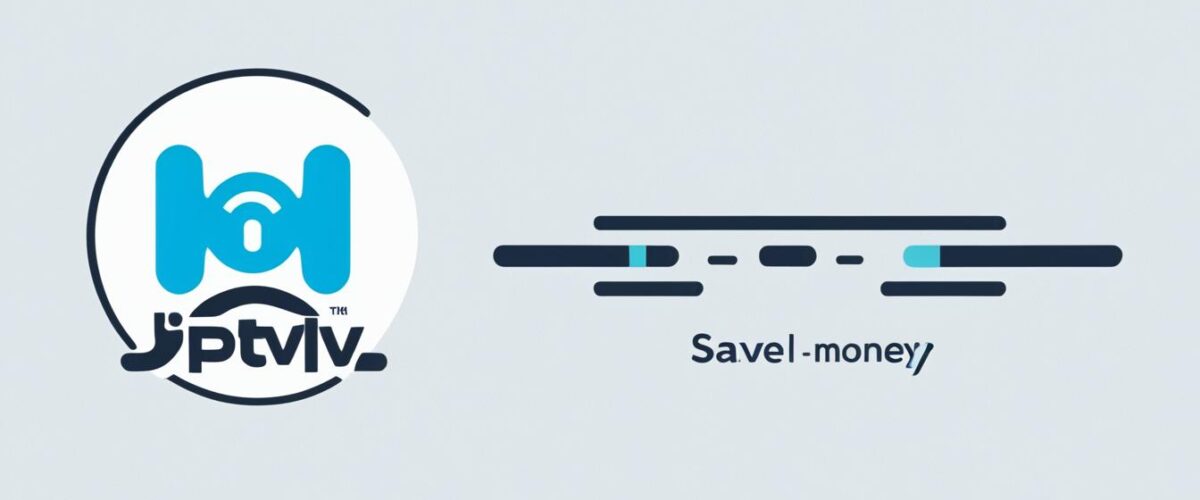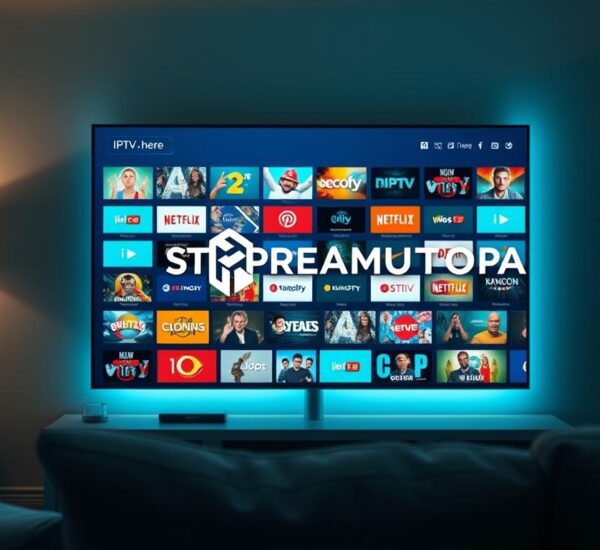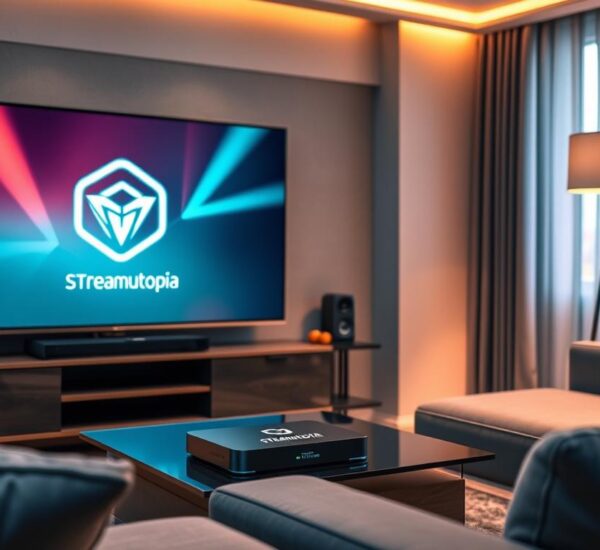Are you ready to shake up your home entertainment? Choosing between IPTV and cable TV is more than a simple preference. It’s a chance to save money and time and improve your viewing experience. With more people looking for affordable and flexible options, IPTV is becoming a top choice over traditional cable. This article will explore the main differences in costs and features. It will highlight the IPTV benefits and introduce StreamUtopia as a leading IPTV service provider.
Key Takeaways
- IPTV often provides more affordable monthly subscription plans compared to cable TV.
- Services like Hulu TV and Sling TV are viable IPTV options that come at lower costs.
- IPTV eliminates the need for multiple packages, which can balloon the cost of cable.
- Customization of channel lineups in IPTV saves on equipment expenses.
- IPTV offers the convenience of streaming on various devices, enhancing flexibility.
- For those wanting to cut the cord, IPTV can be an attractive alternative.
Understanding IPTV and Cable TV
IPTV, or Internet Protocol Television, brings TV shows over the internet. It’s different from old-school TV. This IPTV definition shows how it uses the internet to stream shows in a new way. It lets viewers pick from many channels for just $19.99, making it a great deal for those watching on a budget1.
Cable TV explained is the old way of getting TV shows through cables. It’s reliable and gives clear video signals. But, more people are choosing streaming solutions over cable. Now, streaming can cost as little as $5 a month, while cable can be up to $1452.
Both IPTV and cable TV have their good and bad points. As streaming gets better, more people might pick IPTV for sports and shows from around the world. The difference between Cable TV explained and IPTV shows how TV watching is changing.
How IPTV Works
IPTV uses Internet Protocol networks to send content straight to users. This makes IPTV streaming possible on devices like smart TVs, smartphones, and computers. It lets users watch what they want, when they want, unlike traditional cable TV’s fixed schedules3.
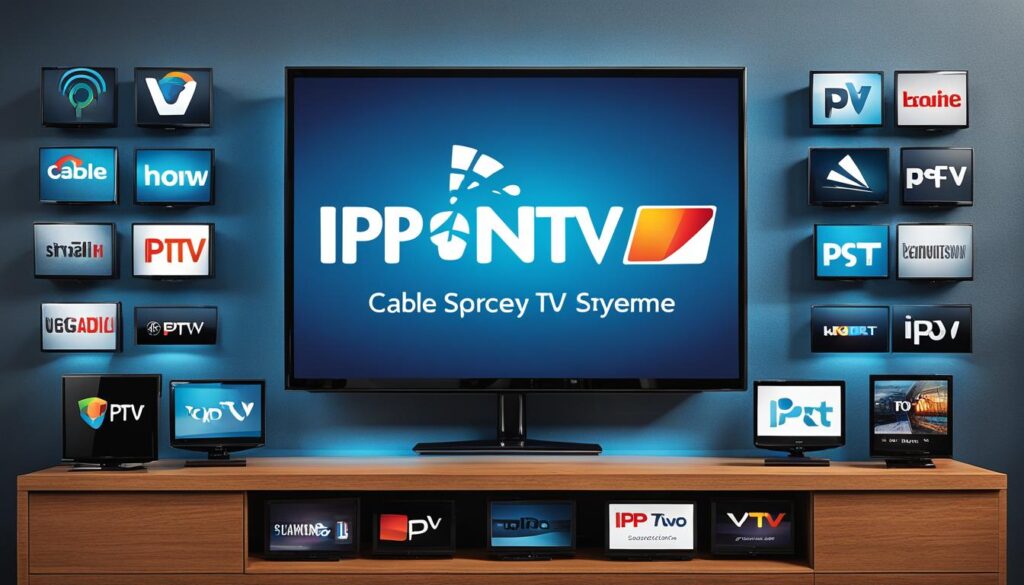
IPTV offers lots of on-demand content and high-definition viewing with little to no extra fees. Services are usually paid monthly, so users can easily change or cancel subscriptions. This is a big difference from cable TV, which locks customers into long contracts with big cancellation fees4.
With IPTV, you get cool features like cloud DVR storage and user profiles for free. Cable TV makes you pay extra for these features, and service costs can add up fast4. As technology gets better, IPTV is set to grow, meeting consumer needs and embracing new tech like 5G for better viewing3.
Learning about IPTV shows why it’s a great choice for those wanting a more personal and affordable TV experience.
How Cable TV Works
Cable TV uses coaxial cables to send signals from providers to homes. This traditional cable service uses underground wires to bring content to viewers. People can pick from various channels based on their package.
Cable TV is known for its reliable signal. It doesn’t rely on internet speed like IPTV does. This means customers get a steady signal, making it a popular choice.
Cable TV can offer up to 70 channels with analogue services. But digital cable can give you more channels and options. You can choose from different packages, including regional, national, and premium channels. Some services might cost extra.
So, knowing how cable TV works shows its strengths and weaknesses. It’s a dependable option for those who want a lot of channels and stability.
| Feature | Cable TV | IPTV |
|---|---|---|
| Maximum Channels | Up to 70 (Analogue), More with Digital | Unlimited, based on subscription |
| Installation Requirements | Physical Installation Needed | Internet Connection Required |
| Signal Quality | Reliable, Weather-Resistant | Varies with Internet Quality |
| Content Variety | Regional and National Channels | International and On-Demand Channels |
| Price Range | $40 – $150/month | $10 – $70/month |
It’s important to know these differences when choosing a TV service. Cable TV is still a big deal, even with IPTV and streaming services around567.
Cost Factors: IPTV vs. Cable TV
The IPTV cost comparison shows us why people choose one over the other. IPTV offers affordable packages with lots of channels for those watching on a budget. Cable TV, on the other hand, can get expensive with hundreds of channels that you might not watch. Plus, there are extra costs like installation and equipment rental from cable providers89.
IPTV is known for being cost-effective. You don’t need to buy extra equipment or pay for installation. This means you only pay for the channels you want, unlike traditional cable which often requires you to buy a big bundle89. For example, Sling TV starts at $40 a month for over 30 channels, and Philo is just $25 a month for 115+ channels10. Switching from cable can save you between $30 to over $100 a month10.
The following table highlights the key differences in costs associated with IPTV and cable TV services:
| Cost Factors | IPTV | Cable TV |
|---|---|---|
| Subscription Fees | Starting from $25 to $80/month | Starting from $60 to $150/month |
| Channels Offered | 30+ options with packages tailored to preferences | Hundreds but often unnecessary for viewers |
| Equipment Costs | None | Rental fees apply |
| Installation Fees | None | Typically charged |
| Customization Options | A la carte available | Limited; usually bundled |
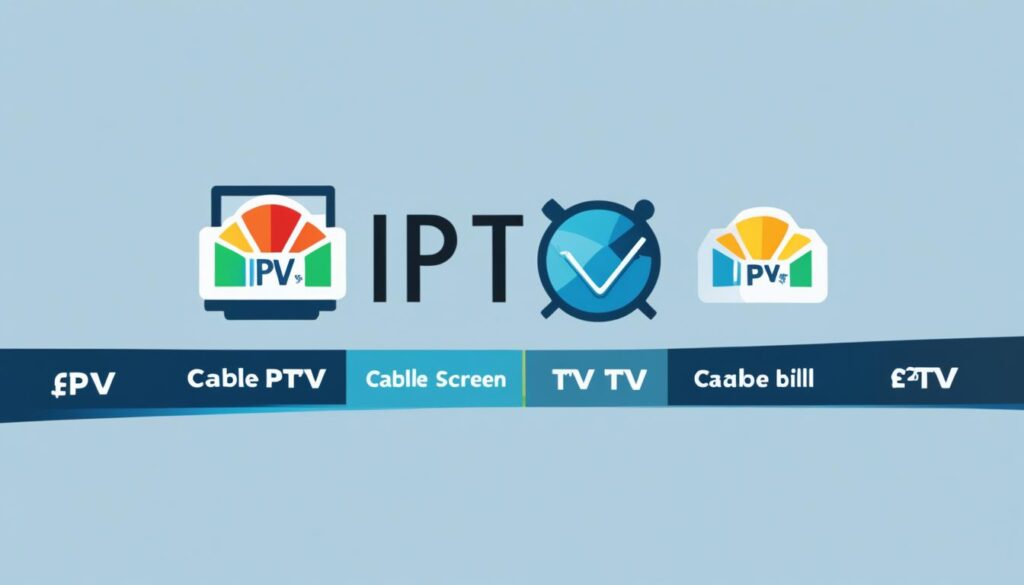
Subscription Fee Comparison
Looking at IPTV and cable costs, we see a big difference in fees. IPTV costs are usually between $25 to $65 a month, based on the channels you pick. Cable TV, on the other hand, starts at $50 to $100 or more. This makes IPTV a cheaper choice for many people.
| Service Type | Average Monthly Cost | Channel Customization |
|---|---|---|
| IPTV | $25 – $65 | High |
| Cable TV | $50 – $100+ | Limited |
These numbers show that IPTV is a great option for those looking to save money. Many have moved to IPTV and streaming to avoid high cable costs and limited choices. For more info on IPTV costs, check this resource. For subscriber details, visit here1112.
Equipment Costs for IPTV and Cable
Understanding the equipment costs for IPTV and cable is key for making smart choices. IPTV often needs devices like smart TVs, streaming sticks, and gaming consoles. These devices can be bought outright, avoiding monthly fees. This means lower IPTV equipment fees compared to cable services.
Cable services usually require special set-top boxes that cost a lot because of rental fees. For example, buying a Roku box can save a lot of money each month. It replaces the rental boxes needed for cable. Many people switch to streaming players to avoid equipment rental expenses, saving money.
The average American household pays about $109 a month for cable or satellite TV. Canceling cable and using free streaming can save over $1,300 a year13. This shows why many are choosing IPTV.
Switching to IPTV makes entertainment better and cuts down on costs. With many affordable streaming options, you can pick what you want to watch. Checking your internet speed and device compatibility is important before switching. This can save money over traditional cable services in the long run14.
Installation Fees: IPTV vs. Cable
IPTV services have a big advantage when it comes to installation fees. You can often install it yourself, saving on installation costs IPTV that come with professional setups. Cable TV, on the other hand, needs a pro to set it up, costing between $50 to $2004. These cable installation fees can increase the price of cable, making IPTV a better choice for those watching their budget.
IPTV also offers easy setup. Many providers give clear instructions for setting it up yourself, cutting down on service setup expenses. This makes it easy for anyone who wants to avoid extra cable charges. As IPTV becomes more popular, its easy setup is a big reason why people choose it15.
IPTV vs. Cable: Save Money and Time
IPTV and traditional cable TV have big differences in cost and how they make you feel. Many people want to save money on TV service. IPTV is seen as cheaper. In fact, 42% of adults like IPTV because it’s cheaper than cable or satellite16. It’s not just cheaper; it also lets you watch TV on many devices.

IPTV lets you stream on TVs, computers, and more without long-term contracts. Over a quarter of adults want to use IPTV on their TVs. This shows people like time-saving entertainment options16. Also, 12% like IPTV for its high-definition quality, making watching TV better16. This shows IPTV is leading in entertainment tech17.
Setting up IPTV is easy, needing less equipment and lower fees than cable. You can cancel your old service without big penalties, making switching to IPTV easier. 33% of adults prefer IPTV if it comes from their current cable company16. IPTV offers a personalized way to watch TV that saves money and makes watching content more efficient.
| Aspect | IPTV | Cable TV |
|---|---|---|
| Cost-Effectiveness | Lower subscription fees | Higher subscription fees |
| Installation Process | Minimal equipment needed | Complex installation requirements |
| Contract Flexibility | No long-term contracts | Often requires long-term contracts |
| Quality of Service | High-definition quality available | Variable quality based on service provider |
IPTV changes how we watch TV for the better. As it grows, it’s becoming a top choice for those wanting to improve their TV experience while saving money and time.
Contract Terms and Cancellation Policies
When looking at TV options, contract terms and cancellation policies matter a lot. Traditional cable TV contracts often last one to two years. This means customers are locked in and face big penalties if they leave early.
On the other hand, IPTV services usually have flexible contracts. They offer month-to-month subscriptions. This lets users cancel or change plans easily without big penalties. Many people like IPTV for its flexibility compared to cable.
More and more viewers are switching to IPTV. A study found that over 30% of cable users have moved to IPTV18. Also, many say they don’t miss their old cable after switching to streaming18.
If you want to change your TV experience, look at the IPTV cancellation policy and think about long-term cable contracts. For setting up an IPTV player on devices like an Amazon Fire TV Stick, there are guides online. They make switching to IPTV easier installing an IPTV player.
Available Features and Add-ons
As TV changes, knowing about IPTV features and cable TV add-ons is key. IPTV offers many features like cloud DVR and streaming on multiple devices without extra costs. Cable TV often makes you pay more for these features, raising your monthly bills.
IPTV lets users pick from many streaming content options. Services like Netflix, Hulu Live TV, and Sling TV have special features for different tastes19. They offer add-ons for sports, movies, and more.
Cable TV add-ons can make bills go up. Monthly costs for cable can change a lot, affecting value. For example, Hulu Live TV’s basic plan costs $76.99 a month, showing how cable can get pricey20.
IPTV is getting more popular because of its great features. It offers catch-up TV, sports, and on-demand shows. Now, it’s not just for a few; it’s growing fast, with traditional providers adding IPTV to their services19. Services like Paramount+ and Peacock show IPTV’s shift to include award-winning shows and exclusive sports21.
| Service | Monthly Cost | Main Features |
|---|---|---|
| Hulu Live TV | $76.99 – $89.99 | Live TV and On-demand options |
| Sling TV | $60.00 | Customizable channel packages |
| Peacock | $5.99 – $11.99 | Access to NBC shows and live events |
| Paramount+ | $8.00 – $13.00 | Original Series and CBS shows |

Internet Requirements for IPTV
IPTV has changed how we watch shows, but it needs certain internet speeds for the best experience. For HD content, you should have at least 25 Mbps broadband. For 4K, you’ll need 50 Mbps to prevent buffering22.
IPTV sends high-quality shows directly to your TV through a strong internet connection. It works better than cable, especially in rural areas where channels are hard to get23.
Fast streaming speeds are key for IPTV. They let you watch shows on different devices at home without interruptions. This is great for families or roommates who like to watch different things at the same time22.
More people are choosing IPTV, so providers like AT&T U-verse and Verizon Fios offer it in their internet packages. This makes it a good deal for customers. IPTV is less affected by internet slowdowns than cable, giving you a better viewing experience24.
| Content Quality | Minimum Speed Required |
|---|---|
| HD Streaming | 25 Mbps |
| 4K Streaming | 50 Mbps |
It’s important to know about IPTV’s internet needs if you’re switching from cable. IPTV offers more flexibility and is a good value for today’s viewers23.
Long-term Cost Comparison
Looking at long-term IPTV savings versus cable TV long-term costs, there’s a big difference. Traditional cable often has rising fees, adding up quickly over three years. For instance, a basic cable plan starts at about $70 a month. This means spending over $2,500 in three years.
IPTV, on the other hand, offers plans starting at $50 a month. This makes it more affordable for many people.
Choosing IPTV can save you up to $700 over three years. This shows how IPTV is cheaper than cable. Cable rates often go up, making it harder on consumers’ wallets. IPTV has fixed prices, making it easier to plan your budget.

More people are turning to streaming services. They like to mix different IPTV options instead of sticking with cable. Services like the Paramount+ Essential plan at $8 a month offer great value25. These bundles can give you more channels without the high costs of cable.
Saving money over time is key for many. People want flexibility and lower costs, which IPTV offers. By looking at the costs over three years, you can pick the best option for your budget. This way, you avoid unexpected costs.
Factors Influencing Cost-effectiveness
Looking into the cost-effectiveness IPTV offers compared to cable TV shows us key factors that matter. Good internet is crucial for IPTV to work well, affecting streaming quality and happiness. It’s important to think about how you watch TV when picking a service. IPTV lets you pick channels you like, unlike cable which often means paying for channels you don’t watch26.
Knowing what local channels are available is key. IPTV services may offer different local channels, but cable usually includes local channels. Combining IPTV with internet and phone services can save money. This is because you get more for less. With OTT video subscription revenues jumping from $12.5 billion in 2014 to $72.75 billion in 2023, IPTV is winning over viewers, making cable adapt27.
More people are choosing IPTV over traditional TV since 2017. They want more flexibility, to save money, and better TV experiences. IPTV is changing how we watch TV. Knowing these factors helps people pick the best TV service for their needs and budget.
Conclusion
The debate between IPTV and cable shows IPTV as a cheaper choice. It’s great for those who want flexibility and quality content. IPTV offers a lot of channels, including HD, which is hard to beat traditional cable2829. Plus, you can pick what you want to pay for, making it a smart pick for many.
Choosing between IPTV and cable depends on what you like to watch and how you like to watch it. IPTV is often cheaper and offers more flexibility, like no contracts and discounts for bundles2830. Think about what matters most to you, like the content, equipment costs, and setup fees, to pick the best service.
IPTV is a strong contender for those looking for a better TV option. It offers a modern way to watch TV and gives you lots of content choices. Making the switch to IPTV is a wise move in today’s digital world.
FAQ
What is IPTV and how does it differ from cable TV?
How much can I save by switching from cable TV to IPTV?
What equipment do I need for IPTV?
What are the installation requirements for IPTV and cable TV?
What advantages does IPTV have over cable TV?
Are there any hidden costs associated with IPTV or cable TV?
Can I cancel my IPTV subscription at any time?
What internet speed do I need for optimal IPTV performance?
How does the long-term cost of IPTV compare to cable TV?
What factors should I consider when choosing between IPTV and cable TV?
Source Links
- What is IPTV and How Does it Work? – https://blog.servermania.com/what-is-iptv
- Cable, Satellite, IPTV & OTT Streaming: What’s the Difference? – BroadbandNow – https://broadbandnow.com/report/cable-vs-satellite-vs-iptv-vs-ott-streaming
- Comparison Between IPTV and Traditional Cable Television – https://www.iptvsmarters.com/a-comparative-analysis-iptv-versus-traditional-cable-television-services-in-todays-era/
- How IPTV Compares to Traditional Cable TV in Terms of Cost – https://medium.com/@darsaa/how-iptv-compares-to-traditional-cable-tv-in-terms-of-cost-3665dad21d27
- What is IPTV (Internet Protocol Television) & How Does It Work? – https://www.firesticktricks.com/what-is-iptv.html
- Web TV, IPTV, DVB-C and analogue cable TV: how to choose – https://maxnet.ua/en/blog/iptv-dvb-c-i-analogovoye-kabelnoye-tv-kak-vybrat/
- Comparison between IPTV and Cable TV – Which One Is the Better Option for You – Heart IPTV – https://heartiptv.com/comparison-between-iptv-and-cable-tv-which-one-is-the-better-option-for-you/
- IPTV vs. Cable: Which Is More Cost-Effective? – IPTV IRELAND – https://iptv.irish/iptv-vs-cable-which-is-more-cost-effective/
- Does Cutting the Cord Really “Save” Money? – https://www.linkedin.com/pulse/does-cutting-cord-really-save-money-jeanette-tolan
- The best live TV streaming services of 2024: Expert tested – https://www.zdnet.com/home-and-office/home-entertainment/best-live-tv-streaming-service/
- What Is IPTV? – https://www.cabletv.com/blog/what-is-iptv
- Cable vs. Satellite TV Service 2024 | Move.org – https://www.move.org/cable-vs-satellite-tv/
- How to Cut the Cord | Roku – https://www.roku.com/what-is-roku/stream-and-save/how-to-cut-the-cord?srsltid=AfmBOorKIDNxlYmK1wl-ON3K3Pj7o9jPEe_u7V3EN2tC4rVFb1MwffUy
- Lastest Cord Cutting Statistics, Facts and Trends [2024 edition] – https://www.comparitech.com/tv-streaming/cord-cutting-statistics/
- What is IPTV? The Best IPTV Guide and Benefits of IPTV – https://blog.webnexs.com/what-is-iptv-the-best-guide-and-benefits-of-iptv/
- Harris Interactive | News Room – https://www.harrisinteractives.com/NEWS/allnewsbydate-NewsID-1020.html
- What Makes IPTV a Good Choice Instead of Traditional Cable Services – https://www.equalitymyth.com/general/say-goodbye-to-cable-the-advantages-of-iptv-over-traditional-tv-services/
- 5 Real Benefits of Cutting the Cable TV Cord – https://www.makeuseof.com/tag/4-real-benefits-of-cutting-your-cable-cord/
- What is IPTV and How Does It Work? – SiteProNews – https://www.sitepronews.com/2020/02/06/what-is-iptv-and-how-does-it-work/
- 10 Best Video TV Streaming Service for Cord Cutters in 2024 – https://www.geeksforgeeks.org/best-video-tv-streaming-service-for-cord-cutters/
- How to Replace Cable TV for About $25 a Month – Consumer Reports – https://www.consumerreports.org/electronics-computers/streaming-media/how-to-replace-cable-tv-for-only-25-dollars-a-month-a6798410203/
- IPTV Vs Traditional Cable: Why IPTV Is best way to Watch | Comwave – https://www.comwave.net/residential/blog/why-iptv-is-the-best-way-to-watch/
- IPTV and Streaming: Distinguishing the Differences – https://www.streamingmedia.com/Articles/ReadArticle.aspx?ArticleID=64719
- TV Choices Explained: Cable, Satellite, IPTV, and OTT – Vels Fibernet – https://velsfibernet.com/tv-choices-explained-cable-satellite-iptv-and-ott/
- How to Replace Cable TV for About $25 a Month – Consumer Reports – https://www.consumerreports.org/electronics-computers/streaming-media/how-to-replace-cable-tv-for-only-25-dollars-a-month-a6798410203/?srsltid=AfmBOop3qOyzqshl5Glq_Q7s9VZx_uYHHiarHz2aJH6gKc0O-6kbEvG1
- Exploring IPTV’s Impact on Traditional Cable and Satellite TV – aerostreams – https://aerostreams.com/2024/01/08/exploring-iptvs-impact-on-traditional-cable-and-satellite-tv/
- Examining Factors Influencing Early Paid Over-The-Top Video Streaming Market Growth: A Cross-Country Empirical Study – https://www.mdpi.com/2071-1050/13/10/5702
- IPTV vs Cable: Which TV Service Is Right for You? – https://www.comicworldnews.com/the-benefits-of-iptv-why-you-should-consider-switching-to-this-service/
- Exploring the Benefits of IPTV: Why It’s Time to Make the Switch – https://tvpremium.co/benefits-of-iptv-why-its-time-to-make-the-switch/
- Unlocking the World of Entertainment: Why You Should Buy an IPTV Subscription from iptvglt – https://www.linkedin.com/pulse/unlocking-world-entertainment-why-you-should-buy-iptv-hassan-qadeer
